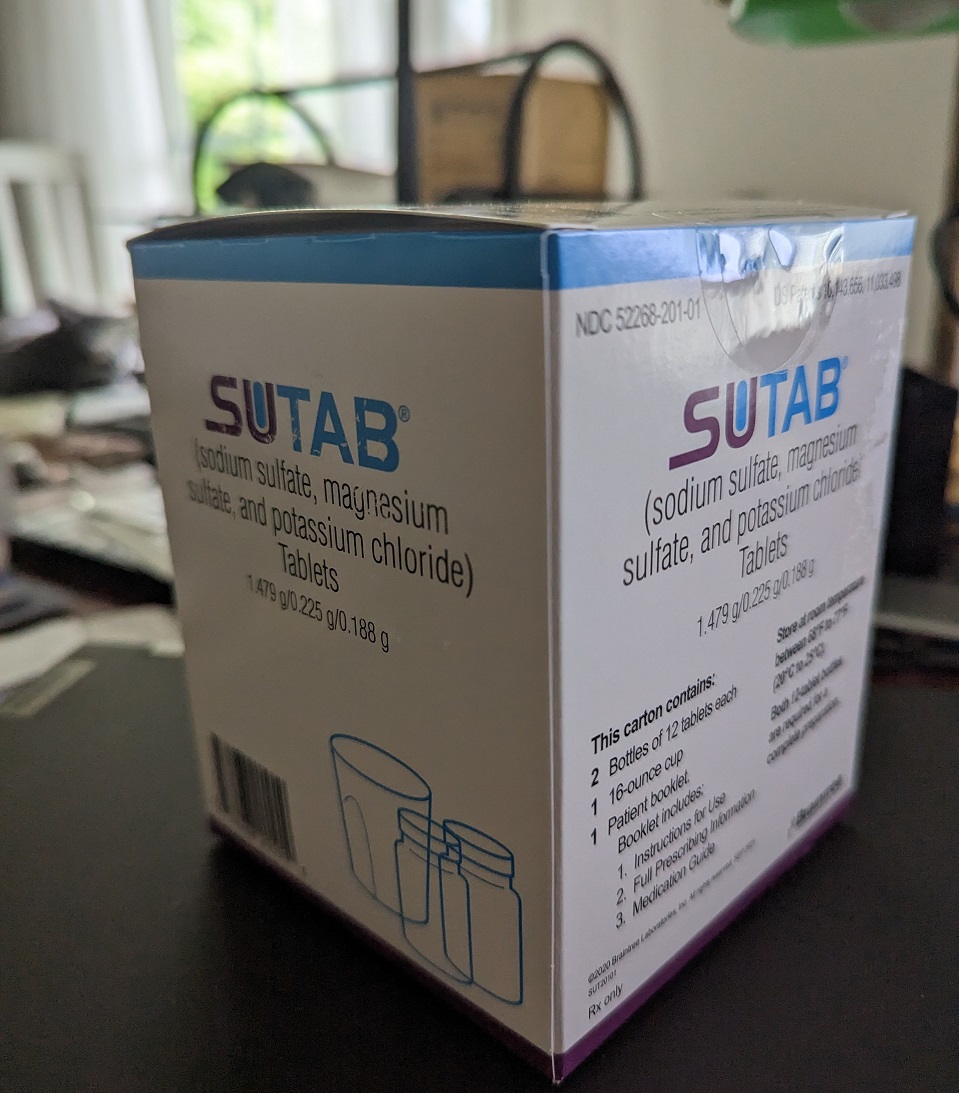I am scheduled for a colonoscopy. I believe it is my 3rd one since turning 50. This time, my gastroenterologist prescribed me a new prep medicine called SUTAB.
The good part: These are tablets that you take with water, no more drinking gallons of an oily, revolting liquid.
The not so good part: When the package with my instructions arrived in the mail, it contained a sheet with guidelines for ordering the SUBTAB tablets from an online pharmacy called Sebela Pharma Rx Direct. A quick Google search educated me. In 2018, Sebela purchased the maker of SUTAB, Braintree Pharmaceuticals, so they are basically the same company.

The pamphlet promises that the drug can be ordered at the manufacturer’s website for a special price of $50 including shipping and handling. The concept of a doctor peddling a drug that needs to be ordered directly from the manufacturer for what does not seem to be a special price at all appeared strange to me. I looked at the order page, read all the fine print about sharing my data, and was not convinced that placing an order was in my best interest, so I put it off to reconsider at a later time.
As the date of my procedure crept closer, I looked at the pamphlet again and decided to call my local pharmacy and ask what it would cost to get this drug through them. They could not answer my question without an actual prescription, so I called my health insurer’s member service number next. The person who took my call looked up my account and gave me a clear answer: SUTAB is categorized as a tier-3 drug (non-preferred) by Blue Cross Blue Shield of Massachusetts and the co-pay on my plan would be no more then $35.
Fine, I thought, I’ll risk that. I called the doctor’s office and requested that the prescription be sent to my local pharmacy instead of Sebela. The admin balked at first and said something about not guaranteeing [some technical term] and upon my request to explain [some technical term] in detail, she repeated [some technical term], but whatever, and that she would send the prescription to my local pharmacy if I really insisted. I did.
The next day I went to CVS to pick up my prescription. It was ready and waiting for me on the shelf, which was a surprise in itself, based on other recent experiences with prescriptions (that’s a story for another day). An even bigger surprise was the price tag:

That’s right, I did not have to pay a penny. Now, that’s what I call a special price.
Why did this upset me so much that I decided to post about it?
For starters, I find that a medical provider steering patients towards spending money directly with a pharmaceutical company represents a clear conflict of interest, and this makes it unethical. It does not matter if there is an actual kickback deal between providers and a pharmaceutical company – the mere appearance of such a deal is sufficient to make it unethical.
Second, $50 for 24 tablets may sound reasonable to someone without (decent) prescription drug coverage, but it did not sound like a bargain to me. Moreover, touting this deal as a “special price (including shipping and handling)” is snake oil TV sales person tactics that I object to and that should be illegal.
And lastly, this process seems to be designed to bypass at least some part of the normal way we as patients, our HMOs, the providers, and big pharma interact to ensure that we get the best care at the lowest cost, and this cannot possibly be good for patients.
So, before you order your SUTAB from Sebela, check with your insurer what your copayment really is. Maybe it is less than what Sebela wants you to think.
P.S.: Sebela tried to reach me by phone several times before my procedure and left messages reminding me that I had not obtained my prescription. This only stopped after I picked up the phone and explained that I did not need them to fill my prescription.
